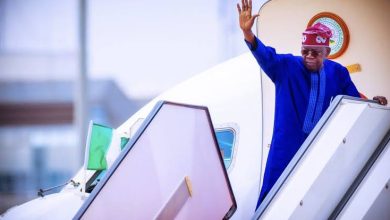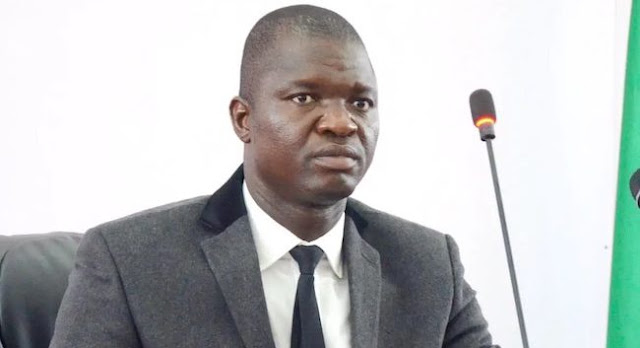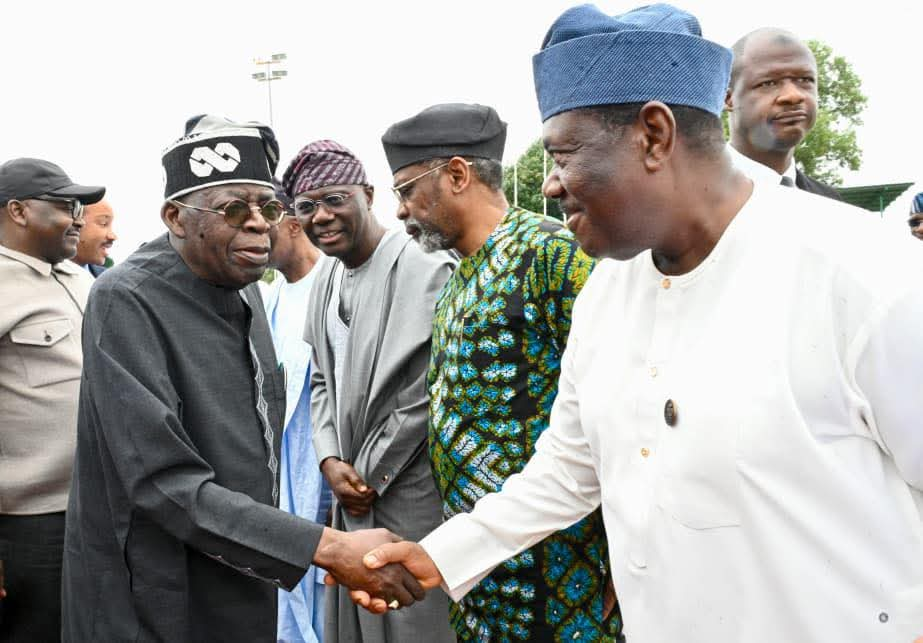On Wednesday, September 3, 2025, President Bola Ahmed Tinubu departed Nigeria for a two-week annual leave, embarking on a trip that includes stops in the United Kingdom and France. The announcement, made by his Special Adviser on Information and Strategy, Bayo Onanuga, has sparked discussions about the timing, implications, and public perception of the president’s decision to take a break abroad amidst Nigeria’s pressing economic and social challenges. As the leader of Africa’s most populous nation, Tinubu’s absence, even for a short period, raises questions about governance, leadership continuity, and the state of the nation. This article explores the context of Tinubu’s leave, its significance, and the broader implications for Nigeria’s political and economic landscape.
The Announcement and Itinerary
According to the statement from Bayo Onanuga, President Tinubu’s annual leave is a customary break, allowing the president to rest and reflect before resuming his duties. The two-week trip began with a departure from Abuja, with the president first heading to the United Kingdom, where he is expected to spend time before proceeding to France. While the statement did not provide specific details about the activities planned during the leave, it emphasized that Tinubu would use the time to recharge and prepare for the challenges of leading Nigeria.
The choice of the United Kingdom and France as destinations is notable. Both countries are significant partners in Nigeria’s international relations, with strong economic, diplomatic, and cultural ties. The UK, a former colonial power, remains a key destination for Nigerian leaders, offering access to advanced healthcare, education, and business opportunities. France, meanwhile, plays a critical role in Nigeria’s trade and security partnerships, particularly in the fight against insurgency in the Sahel region. While the presidency framed the trip as a personal leave, speculation about potential diplomatic engagements or medical checkups has emerged, given the historical precedent of Nigerian leaders traveling abroad for such purposes.
Contextualizing the Leave: Nigeria’s Current Challenges
President Tinubu’s decision to take a two-week leave comes at a pivotal moment for Nigeria. Since assuming office on May 29, 2023, Tinubu has faced a complex array of challenges, including economic instability, rising insecurity, and growing public discontent. His administration’s reforms, such as the removal of fuel subsidies and the liberalization of the foreign exchange market, have had far-reaching consequences, reshaping Nigeria’s economic landscape while sparking debate about their impact on ordinary citizens.
The removal of fuel subsidies, announced shortly after Tinubu’s inauguration, led to a sharp increase in fuel prices, contributing to inflation and a higher cost of living. While the policy was intended to reduce government expenditure and redirect funds to critical sectors like infrastructure and healthcare, it has placed significant strain on Nigerians, many of whom rely on affordable fuel for transportation and small businesses. The naira’s depreciation following the unification of exchange rates has further exacerbated economic hardships, with inflation reaching record levels and essential goods becoming unaffordable for many.
Insecurity remains another pressing issue. Despite efforts to combat banditry, kidnapping, and terrorism in regions like the North-East, North-West, and South-East, Nigeria continues to grapple with widespread violence. The Boko Haram insurgency, though weakened, persists in parts of the North-East, while banditry and kidnapping have surged in the North-West. In the South-East, separatist agitation and clashes between security forces and armed groups have created a climate of fear. These challenges require sustained leadership and strategic interventions, making the timing of Tinubu’s leave a point of contention for some observers.
Against this backdrop, the president’s decision to travel abroad for his annual leave has raised eyebrows. Critics argue that with Nigeria facing such significant challenges, the president’s presence is essential to provide direction and reassure the public. Supporters, however, contend that the leave is a necessary respite for a leader tasked with navigating one of the most turbulent periods in Nigeria’s recent history. The presidency’s statement emphasized that Tinubu would remain in contact with his administration and continue to monitor national developments, suggesting that the leave would not disrupt governance.
Leadership Continuity and Governance During the Leave
To ensure continuity during his absence, President Tinubu has delegated responsibilities to key members of his administration. Vice President Kashim Shettima, who remains in Nigeria, is expected to oversee government operations and coordinate with the president’s aides and cabinet members. The Nigerian Constitution provides for the vice president to act in the president’s stead during such absences, ensuring that governance continues uninterrupted. Additionally, Tinubu’s team of advisers and ministers, including the Secretary to the Government of the Federation and the Chief of Staff, will maintain regular communication with the president to address any urgent matters.
This arrangement is not uncommon in Nigerian politics. Previous presidents, including Muhammadu Buhari and Goodluck Jonathan, took similar leaves during their tenures, relying on their vice presidents and aides to manage affairs. However, the effectiveness of this system depends on the strength of the administration’s coordination and the ability of the vice president to exercise authority in the president’s absence. In Tinubu’s case, Vice President Shettima, a former governor of Borno State with extensive political experience, is well-positioned to handle interim responsibilities. Nevertheless, the public’s perception of leadership continuity will play a significant role in shaping reactions to Tinubu’s leave.
Public Perception and Political Implications
The announcement of Tinubu’s leave has elicited mixed reactions from Nigerians. For some, the president’s decision to take a break abroad is a sign of insensitivity, given the economic hardships and insecurity facing the country. Social media platforms, particularly X, have been abuzz with commentary, with some users questioning why the president could not take his leave within Nigeria. Critics argue that a domestic vacation would demonstrate solidarity with Nigerians and reduce speculation about medical tourism, a sensitive issue given past controversies surrounding Nigerian leaders seeking healthcare abroad.
Others, however, view the leave as a legitimate exercise of the president’s rights. Supporters argue that Tinubu, like any leader, deserves time to rest and reflect, especially given the demanding nature of his role. They point out that the presidency has mechanisms in place to ensure governance continues smoothly, and the leave does not indicate a dereliction of duty. Some also speculate that the trip may include informal diplomatic engagements, which could benefit Nigeria’s international relations and economic prospects.
The timing of the leave, however, amplifies its political significance. Nigeria is at a crossroads, with Tinubu’s reforms facing scrutiny and public patience wearing thin. The economic fallout from subsidy removal and currency reforms has fueled protests and calls for policy reversals, while insecurity continues to undermine public confidence. In this context, Tinubu’s absence, even for a short period, risks being perceived as a lack of urgency in addressing these issues. The presidency’s communication strategy will be critical in managing public perception and ensuring that Nigerians view the leave as a routine break rather than an abandonment of responsibility.
Historical Precedent: Nigerian Leaders and Foreign Trips
Tinubu’s decision to take his annual leave abroad is consistent with a longstanding tradition among Nigerian leaders. Previous presidents, including Olusegun Obasanjo, Umaru Musa Yar’Adua, and Muhammadu Buhari, frequently traveled abroad for official, personal, or medical reasons. These trips have often been controversial, particularly when they coincide with national crises or when they involve extended stays for medical treatment.
For example, during his presidency, Muhammadu Buhari faced significant criticism for his frequent medical trips to the United Kingdom, which fueled speculation about his health and raised questions about the state of Nigeria’s healthcare system. Similarly, Umaru Yar’Adua’s prolonged absence for medical treatment in Saudi Arabia in 2009–2010 created a constitutional crisis, as he failed to formally transfer power to his vice president. These precedents have made Nigerians wary of leaders traveling abroad, particularly when the purpose is unclear or perceived as non-essential.
Tinubu’s administration has been proactive in addressing such concerns, emphasizing that the leave is a planned, temporary break and that the president remains engaged in governance. Unlike past instances where lack of communication fueled uncertainty, Tinubu’s team has sought to reassure the public by outlining the arrangements for leadership continuity. Nevertheless, the historical sensitivity surrounding foreign trips means that the presidency must tread carefully to avoid missteps.
The Economic and Diplomatic Context
While the presidency framed the trip as a personal leave, the choice of the UK and France as destinations invites speculation about potential economic or diplomatic objectives. The United Kingdom is a key destination for Nigerian leaders, hosting a significant diaspora community and serving as a hub for business and investment. Tinubu, a former governor of Lagos State with a reputation for economic pragmatism, may use the opportunity to engage with investors or discuss partnerships to support his administration’s economic agenda.
France, meanwhile, is a strategic partner in Nigeria’s efforts to address security challenges and boost trade. The French government has been involved in supporting Nigeria’s fight against insurgency, particularly through military cooperation and intelligence sharing. Additionally, France is a major market for Nigerian exports, including crude oil and agricultural products. While the presidency has not confirmed any official engagements, informal meetings with foreign leaders or business figures could align with Tinubu’s broader goal of positioning Nigeria as a leading investment destination.
The economic context of the trip is particularly significant. Tinubu’s reforms, while aimed at long-term growth, have created short-term challenges that require careful management. Attracting foreign investment, securing international support for infrastructure projects, and strengthening trade ties are critical components of his administration’s strategy. If the leave includes opportunities to advance these objectives, it could yield tangible benefits for Nigeria, even if the primary purpose is personal.
Challenges of Leadership in a Time of Crisis
Leading Nigeria is no small feat. With a diverse population, complex regional dynamics, and a history of systemic challenges, the presidency demands constant attention and strategic decision-making. Tinubu’s administration has prioritized bold reforms to address longstanding issues, such as Nigeria’s dependence on oil revenue and inefficiencies in public expenditure. However, these reforms have come at a cost, with many Nigerians bearing the brunt of economic hardship.
The decision to take a two-week leave abroad underscores the delicate balance between personal well-being and public responsibility. While leaders are entitled to rest, the optics of such decisions matter in a country where trust in government is fragile. Tinubu’s ability to navigate this balance will shape public perception of his leadership and influence his administration’s credibility.
Moreover, the leave highlights the need for strong institutional frameworks to support governance. Nigeria’s political system relies heavily on the president as a central figure, but effective leadership requires delegation and trust in capable deputies. Vice President Shettima’s role during this period will be closely watched, as will the performance of Tinubu’s broader team. A successful leave—one that does not disrupt governance or exacerbate public discontent—could demonstrate the strength of these institutions and bolster confidence in the administration.
The Broader Implications for Nigeria
President Tinubu’s annual leave abroad is more than a personal break; it is a moment of reflection for Nigeria as a nation. The challenges facing the country—economic instability, insecurity, and eroding public trust—require sustained leadership and innovative solutions. While a two-week absence is unlikely to derail progress, it serves as a reminder of the importance of communication, accountability, and responsiveness in governance.
For the Tinubu administration, the leave presents both risks and opportunities. On one hand, it risks fueling criticism from those who view the president’s absence as a sign of detachment. On the other, it offers a chance to demonstrate that Nigeria’s governance structures are robust enough to function effectively in the president’s absence. By maintaining open lines of communication and ensuring that key issues are addressed promptly, the administration can mitigate negative perceptions and reinforce its commitment to the Nigerian people.
The leave also underscores the need for Nigeria to address systemic issues, such as the state of its healthcare system and the reliance on foreign destinations for personal and official trips. Investing in domestic infrastructure, including world-class medical facilities and tourism destinations, could reduce the need for leaders to travel abroad for routine matters, fostering a sense of national pride and self-reliance.
Conclusion
President Bola Ahmed Tinubu’s decision to embark on a two-week annual leave abroad, starting September 3, 2025, has sparked a range of reactions, from criticism to cautious support. As Nigeria grapples with economic challenges, insecurity, and the need for effective governance, the president’s absence, however brief, carries symbolic weight. By ensuring leadership continuity, maintaining communication with the public, and addressing speculation about the trip’s purpose, the Tinubu administration can navigate this period without undermining its credibility.
The leave also highlights broader questions about Nigeria’s political system, public trust, and the balance between personal and public responsibilities. As Tinubu rests and reflects in the United Kingdom and France, Nigerians will be watching closely to see how his administration manages in his absence and what it signals for the future. Ultimately, the success of this leave will depend on the administration’s ability to demonstrate that Nigeria’s governance remains steady, even when its leader takes a well-earned break.





